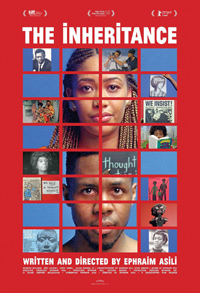Activism Fission: Asili Gets Godardian in Expressive Personal/Political Homage
 A unique marriage of the vintage and modern, topical and archaic, personal and political, pretentious and genuine, Ephraim Asili’s personable and intellectual debut The Inheritance is ultimately a novel throwback to cinema as the ultimate nexus of cultural impact and creative expression.
A unique marriage of the vintage and modern, topical and archaic, personal and political, pretentious and genuine, Ephraim Asili’s personable and intellectual debut The Inheritance is ultimately a novel throwback to cinema as the ultimate nexus of cultural impact and creative expression.
While his title sounds like any number of generic horror films which have utilized this moniker, Asili’s intention is something much more profound as it concerns the notion of passing down wealth, and therefore, opportunity for the next generation, something historically denied Black Americans. This privilege provides the seeds for a septet of motivated young adults in West Philadelphia to form a makeshift Marxist commune.
Julian (Eric Lockley) inherits a house from his deceased grandmother, along with a treasure trove of culturally significant remnants. Initially, he invites casual girlfriend Gwen (Nozipho Mclean) to move in with him, but she serves as the first recruit for what ends up being a seven-person commune, wherein poetry and music provide the background for pertinent community discussions, seminars on Sudanese language and other various facets of enrichment, both hopeful and despairing in the remembrance of things past.
Asili’s approach might seem antiquated, but he’s playing fast and loose with Jean-Luc Godard’s late 1960s political period as a template. Sure, 2 or 3 Things I Know About Her (1967) belongs in this discussion, but it’s La Chinoise (1967), wherein a group Parisian Maoists discuss the possibility of terrorism to inspire a necessary revolution, which Asili really marries himself in commiseration with La Nouvelle Vague. In case we miss it, Godard’s film is a sole poster in a kitchen juicing sequence, which also feels oddly ASMR inspired, and the vibrant color templates provide the same overwhelming sense of monochromatism taking over not only the thoughts of the protagonists but audience perception as well.
A reverence for objects and artifacts is allowed more impact than Godard’s overly loquacious revolutionaries, and one fixates longingly on a variety of records, books and portraits left behind by Julian’s grandmother. A variety of meaningful quotes on the chalkboard enhance various lectures and testaments which seem unrehearsed but blend smoothly with the conversational tones of the budding commune. Readings from Ujamaa (the Swahili word for extended family), a program which intended to nationalize industries from Tanzanian president Julius Nyerere commingle with off-the-cuff observations, like Julian sharing his emotional response after a screening of Tarkovsky’s swan song The Sacrifice (1986), where a desperate man offers up all that’s most precious as the world descends into WWIII.
Educational without feeling didactic, Asili illuminates the tragic circumstances of John Africa and his MOVE organization, the black separatist group bombed by the police in 1985. The levels and references to The Inheritance are potentially dizzying, but Asili’s intentions provide us with the kind of sustenance rare in modern cinematic offerings (at least in English). One doesn’t need to have seen (or even enjoy) Godard’s templates, but a familiarity offers an extra level of playfulness in what Asili’s accomplished. The hope for equanimity isn’t possible without owning the discomfort of the past, but to revel in the exciting creative output of previous generations, which contains the same sentiments about the same issues, is equally imperative. The Inheritance suggests the uneasy balance of these opposing forces, and even if you’re opposed to Asili’s styles and inspirations, the content of the discussions and community representation are priceless.
★★★/☆☆☆☆☆


